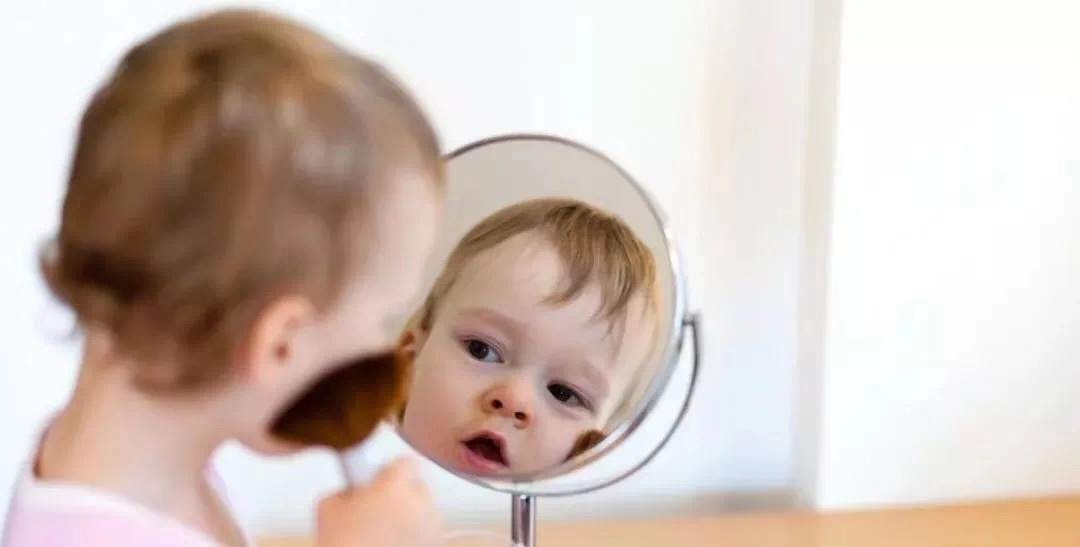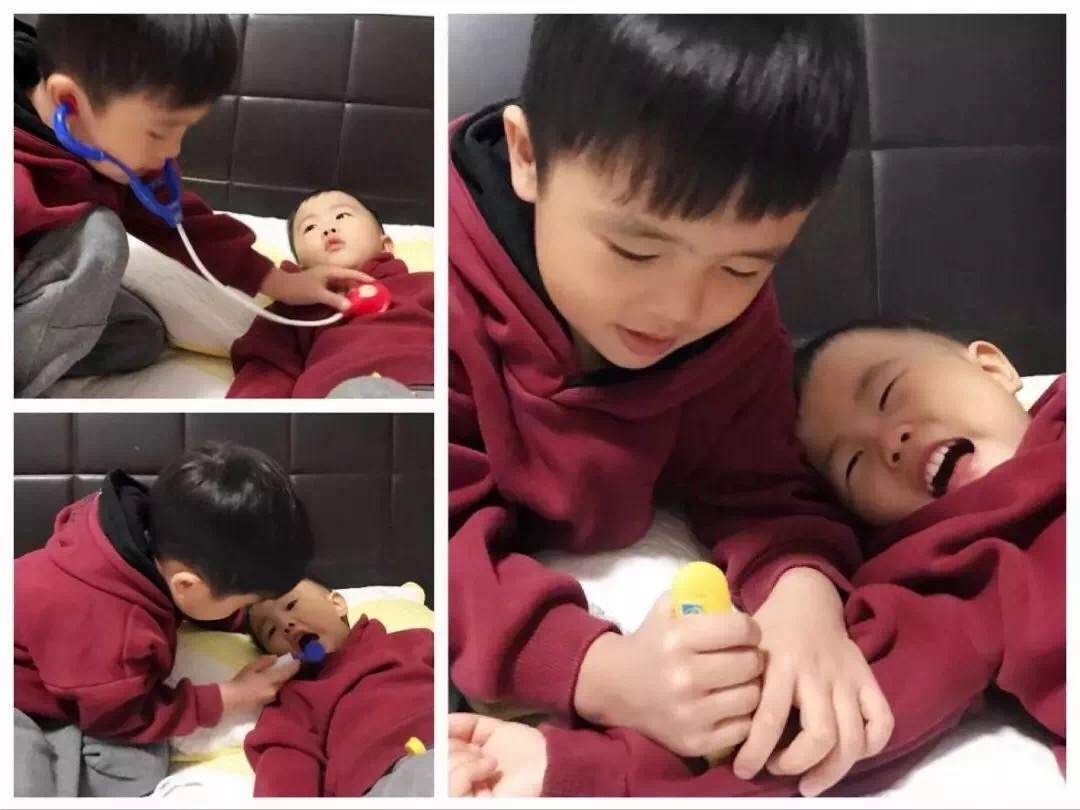Do you like to smear your mother’s cosmetics?
Imagine yourself as Superman and change?
Playing house and pretending to be parents, teachers and doctors?
Who didn’t do these foolish things in his childhood? Every child has an ambition to grow up.
Children grow up in these imitation processes, [imitation] is a learning process for children and a way to explore the world.
Imitation is a child’s innate ability.

Children are born imitators.
Psychologists point out that children begin to observe the world from birth, and they grow up by observing and imitating other people’s behaviors.
When I was young, I imitated expressions, when I was bigger, I was language, when I was bigger, I was behavior, and then I deepened into thinking.
Therefore, 0 ~ 6 years old is called children [imitation sensitive period].
At the age of 2-3, children’s central nervous system function is strengthened, their brain structure is becoming more and more perfect, and they can know more things. This is the best time to imitate.
If parents can pay attention to the sensitive period of imitation and scientifically guide their children’s imitation behavior, children can give full play to their learning and observation ability and step up their cognitive ability.
Children who like to imitate are smarter.

The process of children’s imitation is actually the process of learning and adapting.
In the process of imitation, children should constantly challenge themselves, develop their own thinking and practical ability, constantly run their brains, then understand the world and rules step by step, and finally move towards independence.
Children watch you brush your teeth and dress every day, and they will be exposed to them. They will gradually practice these skills in their hearts. Once they realize [I can do] [I can do], they will become independent.
By imitating actions, children’s thinking development can be promoted, their ability to think about problems can be improved, and brain intelligence development can be facilitated.
No wonder people often say that smart children like to imitate more.
Imitation of nature and skillful guidance make role-playing more fun.

To put it bluntly, imitation means [following the example], which is what we call [acting].
Since the children like it, then we will accompany them to Cosplay and play role-playing games!
Don’t underestimate these house-playing games, which contain university questions!
1. Guide children to imitate-understand the rules
Just look for a few toys and put them on the floor. The little boss shouted at the top of his voice-[selling things! ]
A shop game, a financial and business education class can begin!

You need [money] to circulate when you sell and I buy. You need to pay attention to the size of the numbers when bargaining. Calculating money and changing money is a good math exercise. Ordering and clearing goods can also cultivate children’s ability to clean up and sum up.
Don’t underestimate the little game of [opening the door to do business]. In the process of imitating the shopkeeper, the child not only learned the rules of doing business, but also practiced the method of mathematical operation, which can achieve more with one stroke.
2. Guide children to imitate-understand others
In the first season, Zhang Liang asked his son to imitate the village chief’s speech every day, while he imitated it every day and made trouble when the village chief spoke.
A simple little move makes every day understand that it is impolite not to keep quiet when others are talking.
It is better to think from another’s perspective and have a [drill] of role exchange.
Zhang Liang’s approach is brilliant. Role-playing is used to enable children to think from different angles, push themselves and others, understand different feelings, improve the management of self-emotion in the process, and become more sensible, considerate and abide by the rules.

3. Guide Children in Imitation-Overcome Fear
Few children are not afraid of injections, but every child likes to play the game of doctor playing.
My family often plays doctors and patients in turns, pretending to wear a stethoscope and listen to it from left to right, making casual nonsense about the name of the disease, and then giving injections and medicines.
A decent request [the patient] to stretch out his arm and comfort [the patient] while giving an injection: [Don’t be afraid, it’s just a little ant bite! All right, look, it’s over, it doesn’t hurt! [After typing, don’t forget to put up a love sticker for you as a reward.
 Photo Source: Provided by Author
Photo Source: Provided by Author
In the process of imitating the doctor, in the long run, the syringe becomes a small prop like a game, and the tablets are just small candy, which is not so scary.
4. Guide children to imitate-learn skills
In addition to the above, children can learn more skills from daily imitation.
For example, when adults clean up, they also give children a rag to try to wipe the table. Let the baby participate in the collection of scattered toys, effectively use the child’s imitation, and help the child cultivate good living habits.

In addition, imitating parents to stir-fry and cook, imitating teachers to teach and lecture, imitating police to catch thieves and save lives, imitating Superman to do everything … These children play the game of “playing house”, which is a good way to improve their life skills.
When imitating the staff of various trades, in addition to popular science professional knowledge, children can also be educated to have no distinction between high and low occupations and respect the efforts of various trades.
To say that you are playing small games is actually to feel the big life.

Role-playing is definitely not a simple [playing house], it is a mirror for children to know the adult world.
It can be said that there is great wisdom in small games.
Clever use of role-playing can not only satisfy the baby’s curiosity about the adult world or the fairy tale world, but also show his creativity and imagination in the playing process, obtain a sense of accomplishment, and promote the child’s communication and interaction ability.
Having said so much, I believe you must have learned it. It is better to grow up happily with your children in imitation from today on.
